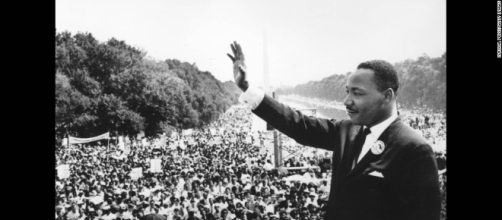Perhaps the watershed moment of the LGBT movement was Obergefell v. Hodges in 2015, in which the Supreme Court decided that the fundamental right to marry is guaranteed to same-sex couples in all 50 states. It came as a signal that a significant legal battle had been won. Unfortunately, it also came with the misinformation that a cultural battle had been won, with people on both sides mistakenly waving flags of victory or concession.
What the ruling did was convince Americans, LGBT and straight alike, that America was "okay" with queerness. And it wasn't.
And it isn't.
Bias
A study from Indiana University in 2014 showed that even though people were generally on the level when it came to "formal rights" for LGBT individuals (inheriting possessions, hospital visits, sharing health insurance, etc.), this did not correlate to a positive opinion of "informal privileges" like kissing or holding hands in public.
(This trend hearkens back to another study, headed by David B. Sparks and Candis S. Watts of Duke University, that showed that, "On one hand, overt, negative attitudes among white Americans toward Blacks have declined in prevalence, but on the other hand, white Americans typically do not support policies aimed to ameliorate racial disparities (and often do not support black candidates).
And this is how its always been.
Theory and practice
What these examples show is that you can support a black president while harboring troubling sentiments about black people in general. You can support gay rights, but still be creeped out by gay people. Or even the flip side, where you have no problem with minorities on a personal level until they attempt to change the system in some way (get married, get elected, etc.) It reveals a profound difference between who people believe themselves to be, or who they aspire to be, and who they actually are.
This matters for understanding relations as we move forward. I've had close friends tell me that everyone's fine with LGBT now, and that is simply not the case.
I've written about the danger of liberals believing that simply because they think the world should be a certain way, that it already is. These dualities exist and it is up to us to understand them. However, they're not always bad.
People don't have to like you
Even though it would be better if we lived in a world where people had amicable feelings toward the disenfranchised groups we stick up for, I believe we've all taken a misstep if we think that's the goal. Words like "acceptance," "tolerance," and "affirmation" emanate from LGBT culture, but perhaps it's missing the point.
During the 2016 campaign, presidential candidate Hillary Clinton shared a bit of applicable wisdom, "You don't change hearts and minds, you change policy." As much as that may strike some as crass and pragmatic, it is believable.
For example, white America did not simply change its racist practices based on the elegiac prose of Martin Luther King, Jr., but because policy necessarily pushed them in a direction towards anti-racism. Speaking from a black experience, it doesn't matter as much to me that people like me than that they respect my rights.
As Denzel Washington says to his son in the 2017 movie "Fences," "I don't want you going through life worrying about whether or not people like you, you better make sure they're doing right by you." Fighting for rights (often rights that are already granted to all American citizens, but that are disrespected when it comes to certain ones) will always be more powerful than fighting for tolerance.
This is for the simple reason that a fight for rights can bring in more people. It's not necessary for an atheist to believe in Allah to defend a mosque from being illegally surveilled. It's not necessary for homophobic people to "affirm" LGBT individuals in order to stick up for their right to marry. And you don't have to "celebrate" black people to speak out against excessive force or unlawful search and seizure.
Reaching out on these grounds gives people the leverage they need to overcome even their basest instincts when it comes to race, gender, and religion. It appeals to an American sense of fairness that we have never had, but aspire to, and it challenges others to, as Martin Luther King Jr.
would put it, see that, "this nation will rise up and live out the true meaning of its creed: "We hold these truths to be self-evident, that all men are created equal." These dualities already exist in the minds of people that we can get the support of, so it might be best to focus on using them to our advantage.

